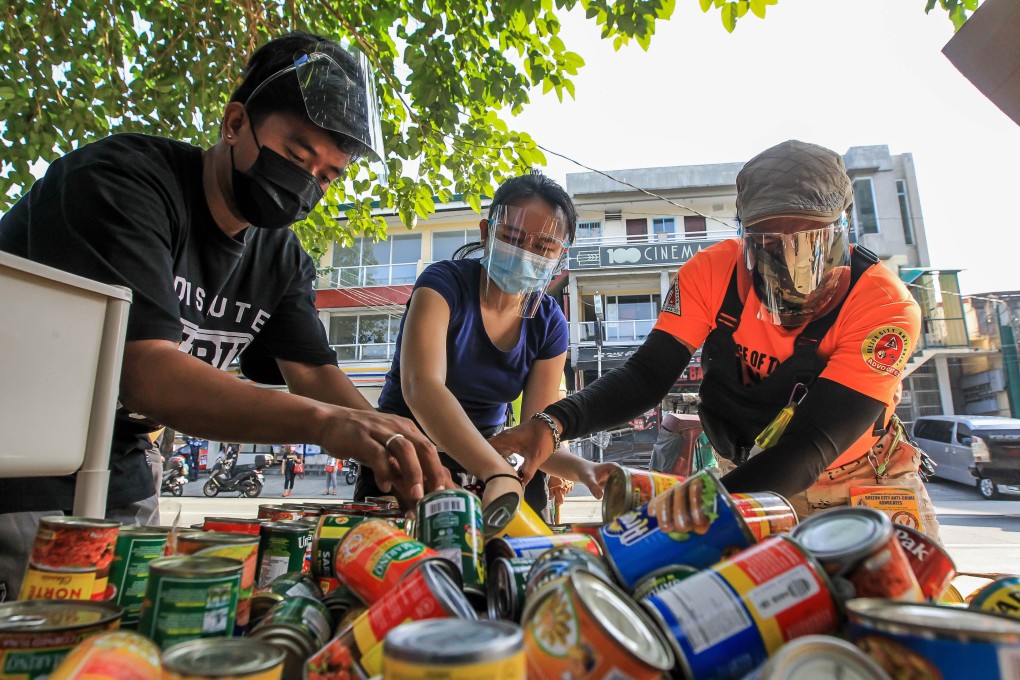Philippine woman who started food bank branded a communist, compared to Satan by Duterte’s forces
- Ana Patricia Non, 26, recently set up a shelf with groceries for those who have been jobless and hungry during Covid-19, sparking a nationwide trend
- Then anti-terrorism forces accused her of being a Duterte critic and communist rebel, even though the president himself appeared to approve of her initiative

On April 14, Ana Patricia Non set up a small bamboo cart on a pavement in a Quezon City village, stocking it with 800 pesos (US$16.50) worth of groceries, including vegetables, packs of rice and noodles, canned food, and bottles of water.
The 26-year-old resident attached a handwritten cardboard sign that read “Maginhawa Community Pantry”, after the name of the street, and came with a guideline written in Tagalog: “Give according to your means, take according to your need.”
On Facebook, she shared pictures of the cart and people helping themselves to the community pantry’s contents, and encouraged others to set up their own food banks. “You can do it, just don’t expect anything in return,” Non, a visual communications graduate from the University of the Philippines (UP), said in an interview with local media.
Then trouble started brewing. Soon after Non set up her pantry, three policemen showed up armed with assault rifles. They demanded her personal details and asked which organisation she belonged to.
A post appeared on the Quezon City police department’s Facebook page alleging that the food banks were being used to recruit soldiers for the communist New People’s Army.

The National Task Force to End Local Communist Armed Conflict (NTF ELCAC) claimed the pantries were being supported by the Communist Party of the Philippines.